When we were researching Down syndrome we came across a lot of information. We read about myths that have always existed and how medicine and science have advanced, helping the quality of life of people with Down syndrome to improve substantially.
While researching we had the opportunity to speak with two foundations that were created to support people with cognitive disabilities. One of these foundations was portrayed in the March 2020 issue and now we will talk in detail about the second foundation that opened its doors to us.
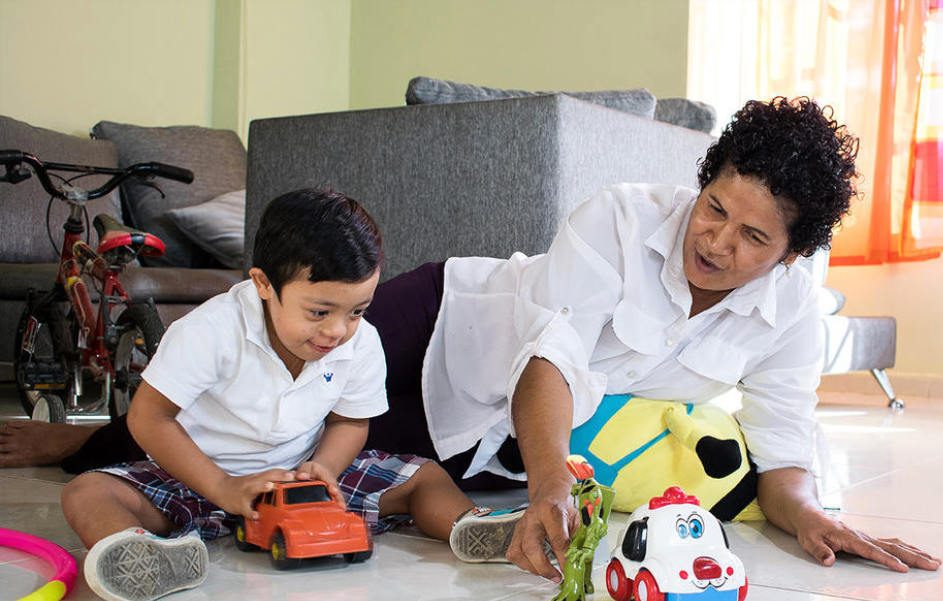
We are talking about FUNDOWN CARIBE. So, its founder and president, Claudia Ritzel F., let us know a little more about how and where they work.
We also had the opportunity to speak with pediatrician Dr. Eduardo Moreno Vivot, who specializes in Down syndrome.
The foundation
Fundown Caribe was founded in 2007 as a non-profit organization. The idea, since its creation, has always been and will always be to open spaces of participation with equity for people with cognitive disabilities in society.

Laura Viera A: Claudia, thank you very much and well, let’s start at the beginning, do you have any personal motivation to work with this issue?
Claudia Ritzel F., founder, and president FUNDOWN CARIBE: My youngest daughter, Carolina, is 17 years old, she will be 18 in April, and she has Down syndrome. So 18 years ago I entered this world of disability. It was an unexpected surprise and at the time of the news, I had to assume and try to do everything as best as possible.
Laura Viera A: How was the foundation created?
Claudia Ritzel F., founder, and president FUNDOWN CARIBE: I met a couple of people who were in the same situation, with children of the approximate age of my daughter and we began to exchange a lot of information and at one point we realized that we had a lot of information and that neither in Barranquilla nor in the Caribbean region there was an organization of families for families of people with Down syndrome that offered training, information, and guidance. That is how, now in our 14th year, we started with the Down Syndrome Foundation of the Caribbean, Fundown Caribbean.
Fundown Caribe is committed to the continuous improvement of the operational and management quality of its team, as well as networking with strategic allies to develop programs, projects, and services that are relevant and in line with the local and global reality.
Laura Viera A: You only work in this region, right?
Claudia Ritzel F., founder, and president FUNDOWN CARIBE: Yes, that’s right. More so in Barranquilla and the Atlantic than in the other regions. We do some work in Santamarta and Cartagena. We have worked on issues in the department of Cordoba, but they are specific projects.
It has to be a social change. Every single person, no matter if they have a cognitive disability or not, has the right to an education and the same opportunities. – Claudia Ritszel –
The basic idea is to promote the inclusion of people with Down syndrome and cognitive disabilities in all areas of society.
The foundation and its team would like to be able to cover the entire coast in general but there is a limitation of financial and human resources that has not allowed it.
Training and guidance
There are many factors that influence the education of students with Down syndrome, such as health, socioeconomic status (SES), and context.
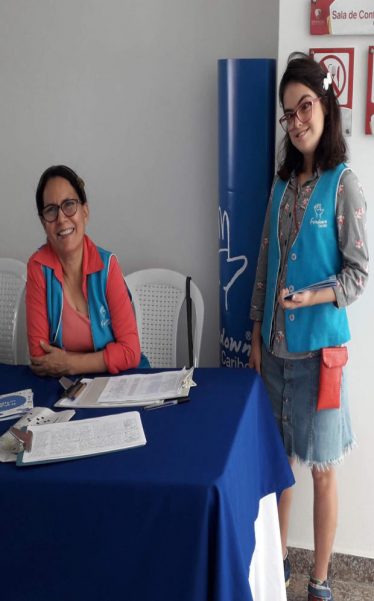
The strategic axes of training, orientation, and awareness are the transforming pillars and agents of social change.
Knowing updated and contextualized information makes it possible that the support and adjustments offered to people with disabilities are relevant and facilitate the development of their potential.
Through lectures, workshops, and the continuous deployment of awareness campaigns, the reality of people with cognitive disabilities is made visible. At the same time, a large-scale impact is generated to strengthen an inclusive culture.
In order to generate a lasting impact on society, the work that is done is profound. That is why we want to say that it is a work from within, it is deep-rooted. This is developed through different campaigns.
The Somos Hermanos (We Are Brothers) campaign aims to strengthen relationships between siblings. These relationships are a source of learning that creates bonds that accompany us throughout our lives.
We cannot ignore the fact that it is with our siblings with whom we build memories from the beginning of our lives.
Siblings of children with disabilities often have to assume some responsibilities. And, in many cases, they must understand and assume that much of the family’s attention will be directed towards their sibling.
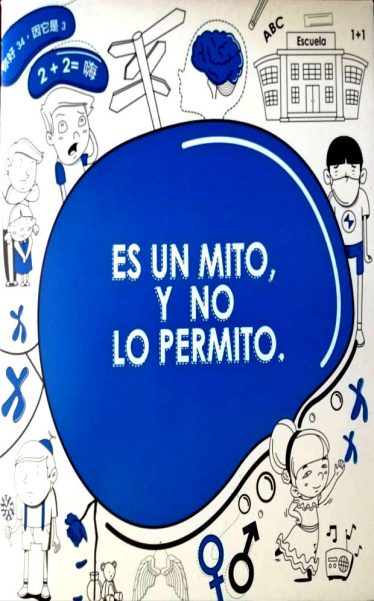
It’s a myth and I don’t allow it, is another campaign. This campaign is a publication produced and distributed free of charge by Fundown Caribe.
The idea is to eliminate existing myths and stereotypes about people with Down syndrome.
Some of these myths are:
1. Everyone is the same. The truth is that each person is unique with his or her own strengths and needs.
2. They are angels and special. The truth is that they are children like everyone else, with successes and mistakes. These labels only generate segregation and create barriers to their participation.
3. They are eternal children. The truth is that people with Down syndrome and cognitive ability are not children throughout their lives. They should be treated according to their age, rights, and duties as citizens.
The other campaign is No two are alike. This is a strategy that promotes inclusion and appreciation of diversity from the school.
To generate this acceptance of diversity, they work under a learning and service methodology where young students are trained as Inclusion Promoters.
The idea is that they become facilitators within their schools, for the realization of playful-pedagogical workshops given to elementary school children.
Two booklets with associated didactic units and support material designed by Fundown Caribe are used.
Claudia Ritzel gave us the opportunity to get in touch with Dr. Eduardo Moreno Vivot, who is a pediatrician specializing in Down syndrome. This is what he told us.
Claudia Ritzel gave us the opportunity to get in touch with Dr. Eduardo Moreno Vivot, who is a pediatrician specializing in Down syndrome. This is what he told us.
“Today the world has opened up and allows them to show that they are more capabilities than difficulties.”
Laura Viera A: Is there a cure?
Eduardo Moreno Vivot, pediatrician specialized in Down syndrome: There is not, but for me, it is not a disease, it is a condition that one has. What you have to do is to support the person so that he/she can develop his/her abilities and skills.
Laura Viera A: What difficulties can a patient with Down syndrome have?
Eduardo Moreno Vivot, pediatrician specializing in Down syndrome: People with Down syndrome have two characteristics: muscular hypothermia and intellectual disability. This will lead them to have motor difficulties and they will overcome them but they have a lot of work to do to strengthen them and they have intellectual distancing due to their disability that they will overcome.
Laura Viera A: What can a person with Down syndrome do?
Eduardo Moreno Vivot, pediatrician specialized in Down syndrome: A person with Down syndrome can do whatever he/she wants. It will depend on the opportunities they have, on their potential, on the fact that they believe in them, we cannot define that beforehand.
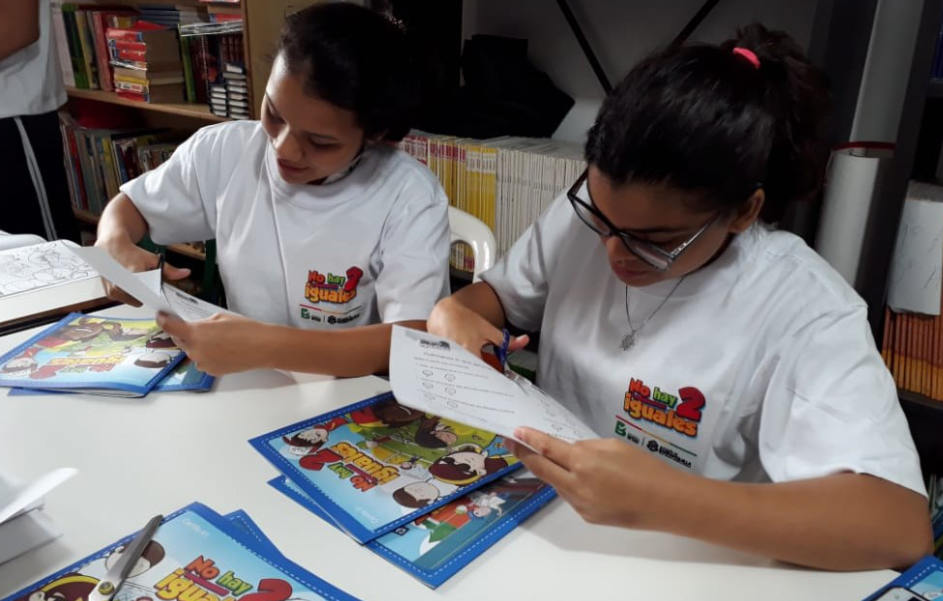
Laura Viera A: What can parents do to help their child with Down syndrome?
Eduardo Moreno Vivot, pediatrician specializing in Down syndrome: As simple as believing in them, giving them everything that a father or mother gives to their child. Then you give them the opportunity to have speech and motor therapists to facilitate and develop their brain development, taking advantage of the concept of brain plasticity that we have in the first stage. But the most important thing is that the parents believe in them, they will see that and they will go very far.
The conclusion
As Dr. Moreno Vivot commented, a lot is unknown about people with Down syndrome. It is unknown how they are and what they think. It is not known that they can do things. They are seen as limited people, as people who cannot.
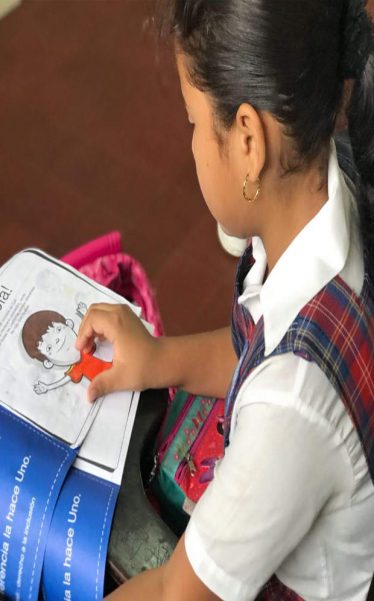
People with Down syndrome are, first and foremost, individuals. The range of capabilities and strengths within this group of people is very wide.
Fundación Caribe is an example to follow. Their concern and sense of duty towards all people with cognitive disabilities in Colombia are impressive.
The importance of educating those around us is the only way to generate lasting changes in culture. Changes that will allow a more pluralistic society, in which everyone enjoys the same rights.
As a society we must change our look and see that they can be ordinary citizens, that they have a number of skills and abilities to develop, it will be very important to change the social look because that will enable them for a lot of other things because it will be seen that they can and that will make life easier for them.


